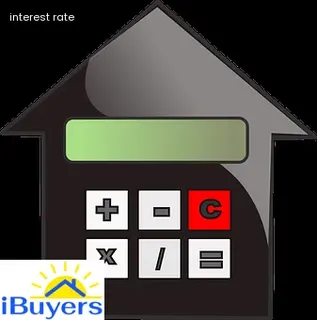When deciding whether to refinance or sell your home, it's important to consider the current interest rates, inflation rate, and home prices. If interest rates are low, then refinancing may make sense since you can get a better rate on your loan.
Inflation is also something to take into account since it affects how much you'll be able to purchase in the future with the money you have now. Home prices are a factor as well; if they are rising quickly, selling may be more beneficial than refinancing.
All these elements play a role in determining which option is more financially prudent for homeowners and should be taken into consideration when making the decision.

Refinancing your home loan can be a great way to save money over the long term. It's important to understand the benefits of refinancing and weigh them against other options, such as selling your home and moving somewhere new.
Refinancing allows you to replace your existing mortgage with a new one that has better terms, possibly reducing your monthly payments. This can help you pay off your loan faster and save on interest.
Additionally, refinancing may enable you to access equity in your home, providing you with cash for debt consolidation or other financial needs. Refinancing also gives you the chance to switch from an adjustable-rate mortgage (ARM) to a fixed-rate mortgage (FRM), which locks in an interest rate for the life of the loan.
This means more stability and predictability with regards to monthly payments, and less risk of facing payment shock if rates go up. Keep in mind that refinancing involves closing costs and other fees, so it's important to do your research and compare offers before making a decision.
If you have a loan that is backed by either Freddie Mac or Fannie Mae, you may still be able to refinance your home even if you don't have a lot of equity in it. Although the exact amount of equity needed to refinance varies by lender, some will offer loans to borrowers with as little as 3 percent equity.
This means even if your home's value has dropped since you purchased it, and you owe more than the house is currently worth, there are still mortgage options available for refinancing. Refinancing can help reduce your monthly payments and interest rate, so it's important to understand the process and do research on different lenders before making any decisions.
It's also important to weigh the pros and cons of both refinancing and selling your home to determine which option makes the most sense for your financial situation.

When considering the pros and cons of refinancing or selling your home, it is important to consider all the factors that affect your mortgage. These include your current mortgage rate, market conditions, potential tax implications, closing costs, and other fees associated with both processes.
Your credit score also plays a major role in determining which option is best for you. A higher credit score can result in a lower interest rate if you decide to refinance, but if you are looking to sell your home then buyers will likely take into account any blemishes on your credit report.
Additionally, there may be incentives available from lenders or real estate agents that could tip the scales in favor of one choice over another. Ultimately, taking all these factors into consideration can help you make an informed decision about what is best for you and your family when deciding whether to refinance or sell your home.
When considering the options of refinancing or selling a home, it is important to weigh the pros and cons of each option. Refinancing can be beneficial if you are looking to lock in a lower interest rate and reduce your monthly payments.
However, you may need to pay closing costs up front. Selling a home can also be a viable option, especially if the market value has significantly increased since you purchased it.
However, there are often significant costs associated with selling such as realtor fees and other closing costs that can add up quickly. Ultimately, both options have their benefits and drawbacks so it is important to carefully consider which choice will best meet your needs before making any decisions.

Making an informed decision when refinancing or selling your home can be a daunting task. It is important to do plenty of research and weigh the pros and cons of each option before you settle on one route.
Refinancing has the potential to lower your mortgage payments and/or shorten the loan term. It can also increase equity in your home.
However, it involves the same process as taking out a new loan, including closing costs and fees associated with obtaining a new loan. Selling your home can help you avoid further mortgage payments and access existing equity more quickly, but there are also costs associated with listing and selling the property.
Additionally, it is important to factor in current market conditions when considering selling your home as this will ultimately determine its sale price. Ultimately, making an informed decision requires careful consideration of all factors involved in both refinancing or selling a home.
When considering whether to refinance or sell your home, it is important to understand the common challenges associated with each option. Selling a home can be a daunting task, as it is an extremely time-consuming process that requires a lot of effort.
Finding a real estate agent who understands your needs and will be able to effectively market your property is essential. Additionally, you may find yourself in competition with other sellers, which could potentially drive down the price of your home.
Refinancing your home also comes with its own set of challenges. Firstly, you must possess a good credit score in order to be eligible for refinancing and may even have to provide additional documentation such as proof of income and employment status.
Even if you do qualify for refinancing, there are often costs associated with closing fees and loan origination fees that can make it expensive. Furthermore, if interest rates have dropped since you purchased the home, you may not gain much from refinancing in terms of savings.
As such, understanding the advantages and disadvantages of both selling and refinancing is essential before making any decisions about your home.

It can be difficult to determine when is the right time to sell your home. Although refinancing can provide short-term relief in some cases, selling may ultimately be the best option if you're looking to maximize your returns.
Before making a decision, you should consider the pros and cons of each option so that you can make the most informed choice for your situation. When it comes to selling your home, there are several advantages such as allowing you to access a large sum of money quickly in order to invest in another asset or pay off debt.
Additionally, selling will enable you to avoid ongoing maintenance costs and other expenses associated with homeownership. On the other hand, there are also considerations such as real estate agent fees, closing costs and potential capital gains taxes which may limit profits from the sale of your home.
Ultimately, it is important to weigh all of these factors carefully before deciding whether refinancing or selling is the best course of action for your particular situation.
When considering the option to refinance or sell your home, it's important to take into account the impact each choice will have on your future plans. Refinancing a mortgage can decrease your monthly payments in the short term, but it also impacts the length of time you are committed to paying off the loan.
Selling a home, on the other hand, can free up equity for other investments such as buying another property or starting a business. However, if you're not ready to move yet and want to stay put, refinancing may be a better option since you can remain in the same home with lower payments and no need to relocate.
Both decisions carry their own advantages and disadvantages, so it's best to weigh them carefully before making a decision that could affect your long-term financial goals.

Refinancing your mortgage has some advantages, but it also has drawbacks. One of the most significant reasons not to refinance is the cost.
Depending on the size of your loan, closing costs and other fees associated with refinancing can be quite substantial. Additionally, if you are underwater on your loan, meaning that you owe more than the home is worth, you may be unable to take advantage of lower interest rates or better repayment terms.
Lastly, if you have a short-term loan or one with a low interest rate already in place, there may be little incentive for refinancing as it could end up costing more money in the long run.
When considering whether to refinance or sell your home, it can be a stressful process. It’s important to manage stress while making such a big decision.
One strategy is to take breaks throughout the process and create a timeline of milestones that need to be achieved. Taking some time away from the task at hand can help you clear your head and make better decisions.
Another strategy for managing stress is to stay organized by keeping track of all documents related to the sale of your home in one folder. This can help reduce anxiety by ensuring that everything is in order when it comes time for closing.
Additionally, speaking with an expert in either refinancing or selling can provide valuable insight into which option is best for you and your financial situation. Lastly, talking through the whole process with trusted friends and family members can also help reduce stress and provide much needed moral support during this potentially overwhelming experience.

For homeowners who are considering selling or refinancing their homes, it is important to weigh the pros and cons of each option in order to make an informed decision. Refinancing a mortgage can be a great way to lower payments, reduce interest rates, and pay off the loan quicker.
However, there may be fees associated with refinancing, such as closing costs and appraisal fees. Additionally, the homeowner must meet certain credit score requirements in order for the lender to approve them for a refinance.
Selling a home can provide homeowners with liquidity that they may not have from a refinance. In some cases, selling may even result in higher profits than what would have been made from a refinance.
On the other hand, depending on current market conditions and demand, it may take longer for homeowners to sell their home than it would for them to refinance it. As such, homeowners should factor in all fees associated with both options when making their decision so that they can choose the best one for their individual financial situation.
Finding the right mortgage lender is an important step when deciding whether to refinance or sell your home. It can be difficult to know which option will best fit your needs, so it is important to do your research.
Look into different lenders and compare rates, terms, and fees to find one that offers you the most favorable terms. Speak with a loan officer and ask any questions you may have about refinancing or selling your home.
They will be able to provide helpful information on both options and guide you in the right direction. Be sure to read through all the documents thoroughly before signing anything, so you understand what is being offered by each lender.
Knowing what is available for financing will help you make an informed decision when it comes time to decide between refinancing or selling your home.

Refinancing your home to get cash out may be a good option for those who are looking for short-term financial help or need to make repairs on their home. However, it does come with some pros and cons that must be taken into consideration.
On the one hand, cashing out when refinancing could provide a homeowner with additional funds to pay off debt or fund home improvements. It could also potentially reduce the homeowner’s monthly payments, as they may be able to refinance at a lower interest rate.
On the other hand, taking out extra money means having to pay more in closing costs and fees, so it is important to do the math and make sure that it makes sense financially. Furthermore, there may be tax implications associated with cashing out during a mortgage refinance, so it’s always wise to consult with a tax advisor before proceeding.
Ultimately, whether or not getting cash out when refinancing is the right decision will depend on your individual financial situation and goals.
When it comes to the question of whether or not to refinance or sell your home, one important factor to consider is how long you can remain in the home after refinancing. In general, you are allowed to stay for a set period of time, usually one year, before being required to move out.
This may vary slightly based on the terms of the refinancing contract and your lender. It's important to read through all paperwork carefully and make sure that you understand any restrictions placed on selling or refinancing your property before signing.
If staying in your home longer than the specified period is an option you are considering, then negotiating with the lender may be possible. Additionally, some lenders may allow an extension beyond the original timeframe if certain conditions are met.
Ultimately, it is important to weigh all options and make an educated decision that best suits your individual needs when deciding whether or not to refinance or sell your home.
When it comes to making the decision between refinancing or selling your home, there are many factors to consider. Refinancing can help you lower your monthly mortgage payments and potentially save money in the long run. However, if you choose to sell, you may get more cash from the sale of your home.
There are pros and cons to both options that should be weighed carefully before making a decision. Refinancing is an attractive option for homeowners because it may result in lower monthly mortgage payments and improve their cash flow. When refinancing, you may be able to take advantage of lower interest rates or switch from an adjustable rate mortgage (ARM) to a fixed-rate loan.
This could lead to significant savings over time as well as reduce overall debt. Additionally, refinancing does not involve any additional costs such as closing costs, realtor fees, or sales taxes. On the other hand, selling your home can provide a larger lump sum of cash than the amount saved through refinancing.
Depending on market conditions, you could make more money by selling than by taking out a new loan with better terms. Additionally, if you are looking for a change of scenery or need more space, selling offers an opportunity to move on without lingering financial obligations such as mortgages and property taxes. Ultimately, whether it is better to refinance or sell your home depends on your individual circumstances and financial goals.
If you have enough equity in your home and have good credit scores, refinancing might be a better option for saving money over time; however if your goal is immediate cash in hand then selling might be the best choice. Consider all aspects carefully before deciding which route makes sense for you and your family's situation.

At some point, it may not be worth it to refinance your home, and it's important to consider the pros and cons of both options before deciding. Refinancing your home can provide access to more favorable loan terms, lower interest rates, and a shorter repayment term.
However, it can also come with closing costs, processing fees, and other associated costs that can add up quickly. Selling your home can provide an immediate influx of cash to pay off debts or invest in something else; however, you'll have to factor in real estate agent commissions and other closing costs as well.
Ultimately, the decision of whether to refinance or sell your home comes down to individual financial goals and circumstances. If you decide that refinancing is not worth it for you financially at this time, selling may be the best option for releasing equity from your property quickly without incurring high costs.
If you are about to sell your home, it is important to consider the pros and cons of both refinancing and selling. Refinancing can be an attractive option if you want to benefit from a lower interest rate or reduced monthly payments.
On the other hand, selling may be the right choice if you need cash quickly or want to upgrade to a better home. Before making a decision, it is important to calculate how much money you will save or lose by either refinancing or selling your home.
Additionally, look into whether the costs associated with either option make sense for your current financial situation. Ultimately, deciding whether to refinance or sell your house should depend on which option provides the most financial benefit over the long-term.
Refinancing your home can be a great way to save money and pay off your mortgage faster, but it is important to consider if selling your house after refinancing is the best option for you. When deciding whether to refinance or sell, there are a number of factors to take into account.
Selling is often the quickest and most effective way to pay off your loan, but refinancing may be a better choice if you want to stay in your home for the long-term. Before making a decision, consider the pros and cons of each option.
Selling can provide an immediate payoff of your loan and give you access to any equity that has built up in the property. On the other hand, this option will also require you to move out of your current home and find somewhere new to live.
Refinancing could be more beneficial if you plan on staying in your current house for years; it allows you to lower monthly payments over a longer period of time and potentially build equity through additional payments or improvements. However, you should keep in mind that refinancing will come with extra costs such as closing fees and appraisal fees.
When choosing between selling or refinancing, it pays to do some research into both options. Think about how long you plan on living in the house as well as how much money you may have available from other sources like savings accounts or investments before making a decision that works best for your financial situation.